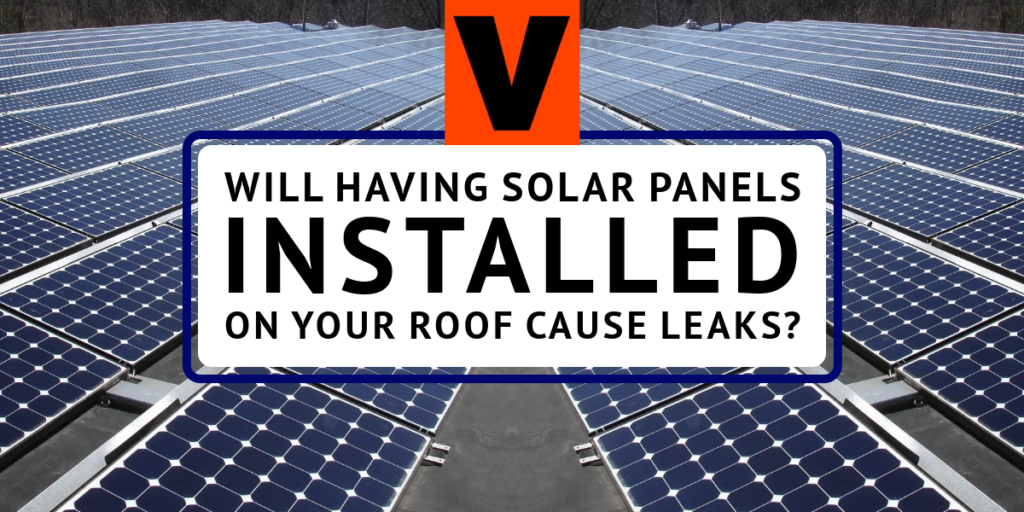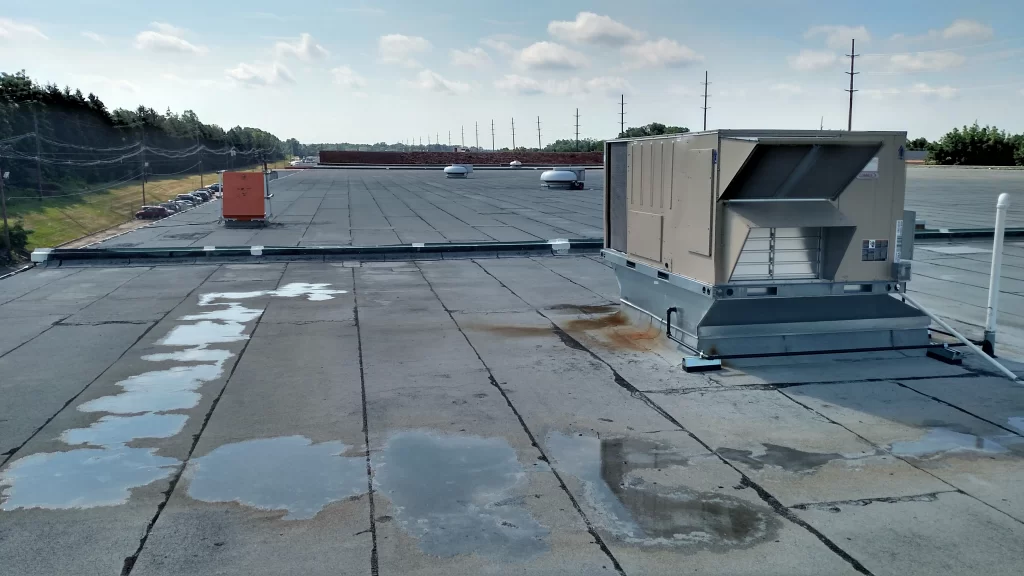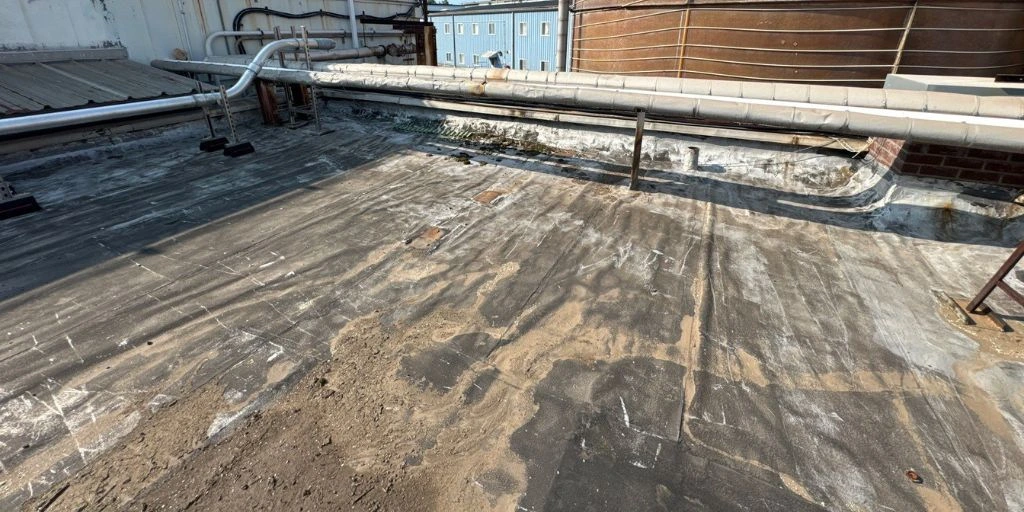For good reason, a building’s roof is the most common location to mount solar panels. An unobstructed roof southwardly sloping toward the sun maximizes sun exposure and solar energy production. As a business owner looking to invest in renewable energy and doing your part to protect the environment, you must perform your due diligence (including any necessary retrofits) before purchasing solar panels.
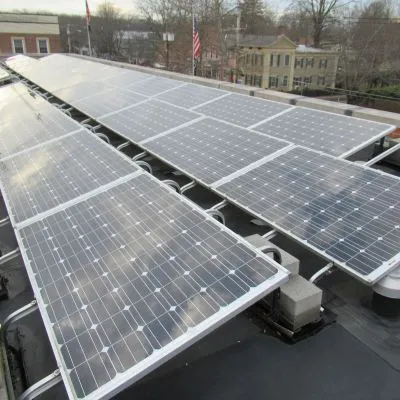
Will Installing Solar Panels Cause Roof Leaks?
Typically, when mounting solar panels, the installer must make holes through your roofing surface. Installed correctly, a solar panel will not compromise the structural integrity of your roof or create leaks. However, you should only hire an experienced photovoltaic contractor to attach solar panels. A roofer lacking knowledge and experience installing solar panels would not be an ideal candidate.
To give you peace of mind, consider that the mounting components for solar panels are designed to protect against leaks. A knowledgeable installer will attach specialized flashing around every penetration and fill holes with a watertight seal. Taking these precautionary steps ensures that the roof avoids leaks. Before installing solar panels, confirm with the installer regarding these procedures.
How To Know If A Roof Is Solar-Compatible
Your roof needs to be “solar ready” if you want to attach solar panels. Otherwise, your roof is not an ideal candidate for solar panels. When considering whether your roof meets the standard for solar panel installation, ask yourself the following questions:
Does My Roof Have Sufficient Usable Square Footage To Accommodate Solar Panels?
Your roof needs enough serviceable surface area (sloped in the right direction) to mount solar panels. Solar panel installation is impossible (or at least not practical) without meeting the minimum requirement of usable surface area. You also must consider building code requirements. Typically, they mandate pathways of open roof areas for access (emergency and nonemergency) and ventilation.
Does My Roofing Material Have The Ability To Attach Solar Panels?
Not all roofing materials can accommodate solar panels. In fact, many roofing types are not suitable. The roof must be made of a strong and durable material to attach solar panels. An asphalt shingle roof typically makes an ideal surface to support solar panels. Flat roofs require a slight tilt towards the sunlight to harness the most sunlight . Wood shake roofs also tend to lack the structural integrity to hold the weight of solar panels.
Consider installing a solar energy system (SES) for building structures with flat or low-slope roofs. Consisting of a large block of solar arrays, an SES harnesses the sun’s power and transforms it into electricity. Employ a roofing contractor with the knowledge and experience to convert your roofing system to handle an SES. Conversion includes addressing weight restrictions and meeting energy codes.
Is My Roof In Sufficient Condition To Mount Solar Panels?
A roof with signs of damage or lack of proper ventilation may not be optimal for attaching solar panels. Symptoms of excess wear and tear can include issues with the roofing material or other roofing components (such as underlayment or flashing). Additionally, a roof nearing the end of its lifecycle (in less than ten years) commonly does not make an ideal candidate for installing solar panels.
Repairing Or Replacing A Roof Before Adding Solar Panels
Before mounting solar panels on your roof, you should have a professional roofing inspection (ideally from a certified commercial roof inspector). Request that the inspector identify any known issues and estimate how much life remains in your existing roof. A roof requiring many necessary repairs or a replacement is not typically an ideal candidate for installing solar panels – at least not in the immediate future.
Attaching new solar panels to a roof with known issues or needing replacement is a surefire way to compound problems. The integrity of your roofing system cannot afford further stress. Always repair a damaged roof or install a new roof before adding solar panels. This time-tested and rational procedure will save you from problematic headaches and maximize your return on investment.
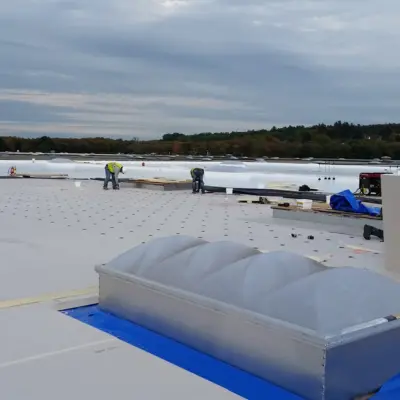
Preventing Roof Leaks When Installing Solar Panels
Assuming your roof passes an inspection (i.e., it does not need repairs) and is ready for mounting solar panels, the number one way to avoid roof leaks is to hire an experienced photovoltaic contractor. They know how to install solar panels correctly and avoid issues inexperienced contractors may not recognize or understand. Improper installation of solar panels is the primary cause of roof leaks.
How Solar Panels May Protect Your Roof And Add Years Of Life
One significant benefit of installing solar panels is damage protection. Your roof may perform better and experience an extended lifespan. How? By design, solar panels are extremely durable and resistant to damage. In effect, solar panels add an extra layer of armor against outside forces, including high winds and hail. They also safeguard against the long-term corrosive effects of sun, rain, snow, and wind.
At Vanguard Roofing, we prepare commercial roofs for mounting solar panels. We repair or replace worn roofing systems in advance of solar panel installation. We also convert flat or low-slope roofing systems for accommodating a solar energy system (SES). As the leading roofing company in the Northeast United States, we can help you with all your roofing needs. Contact us today for more information.

